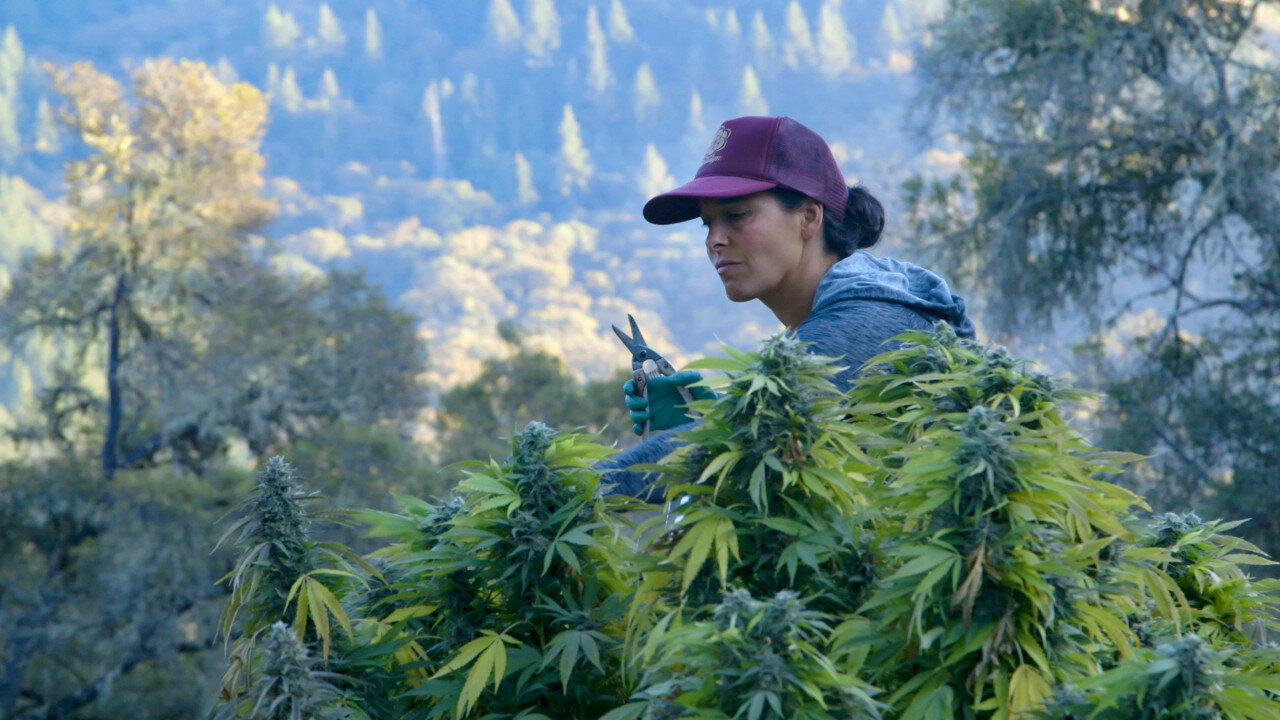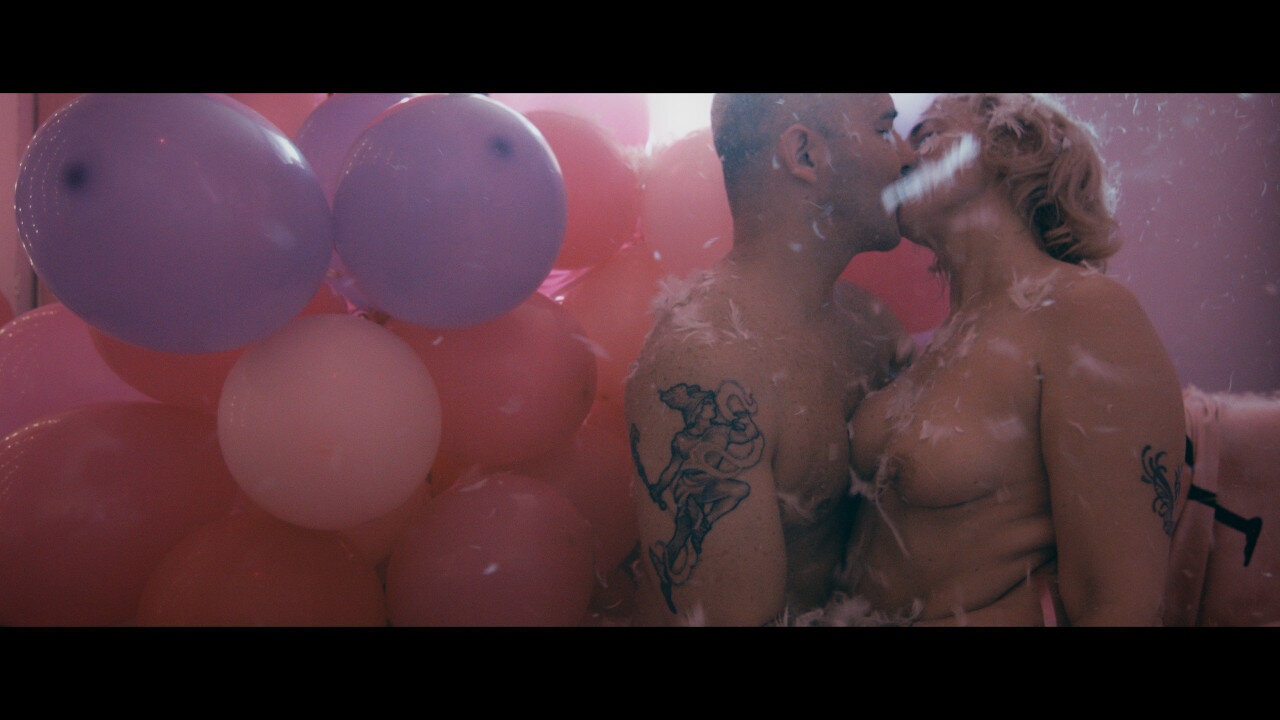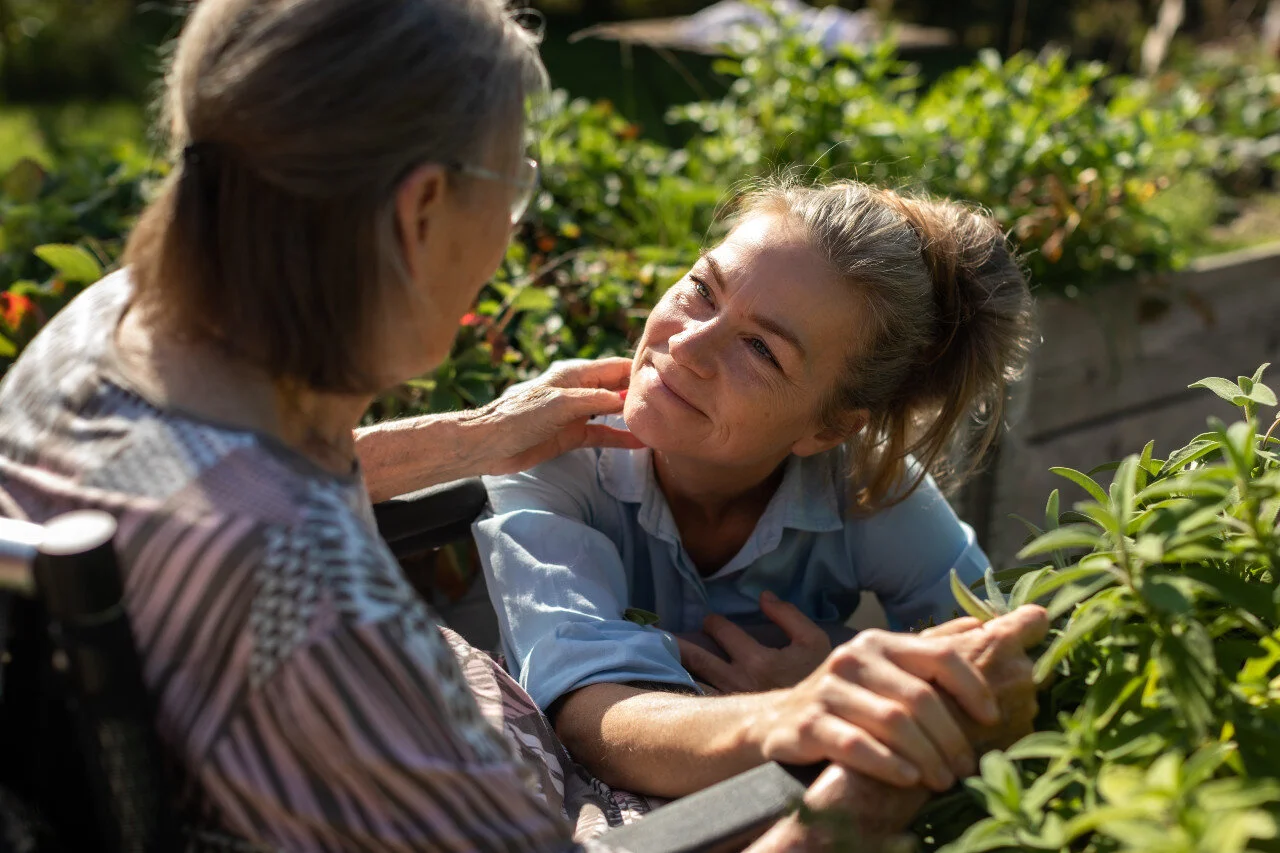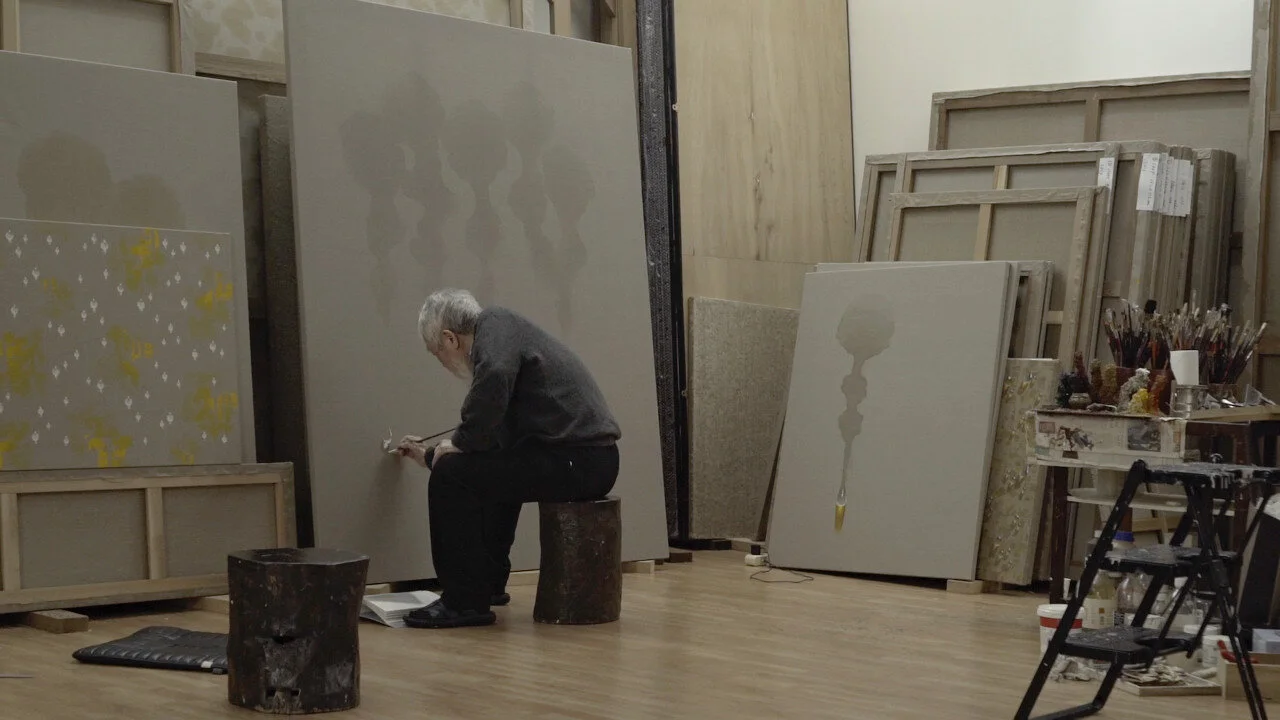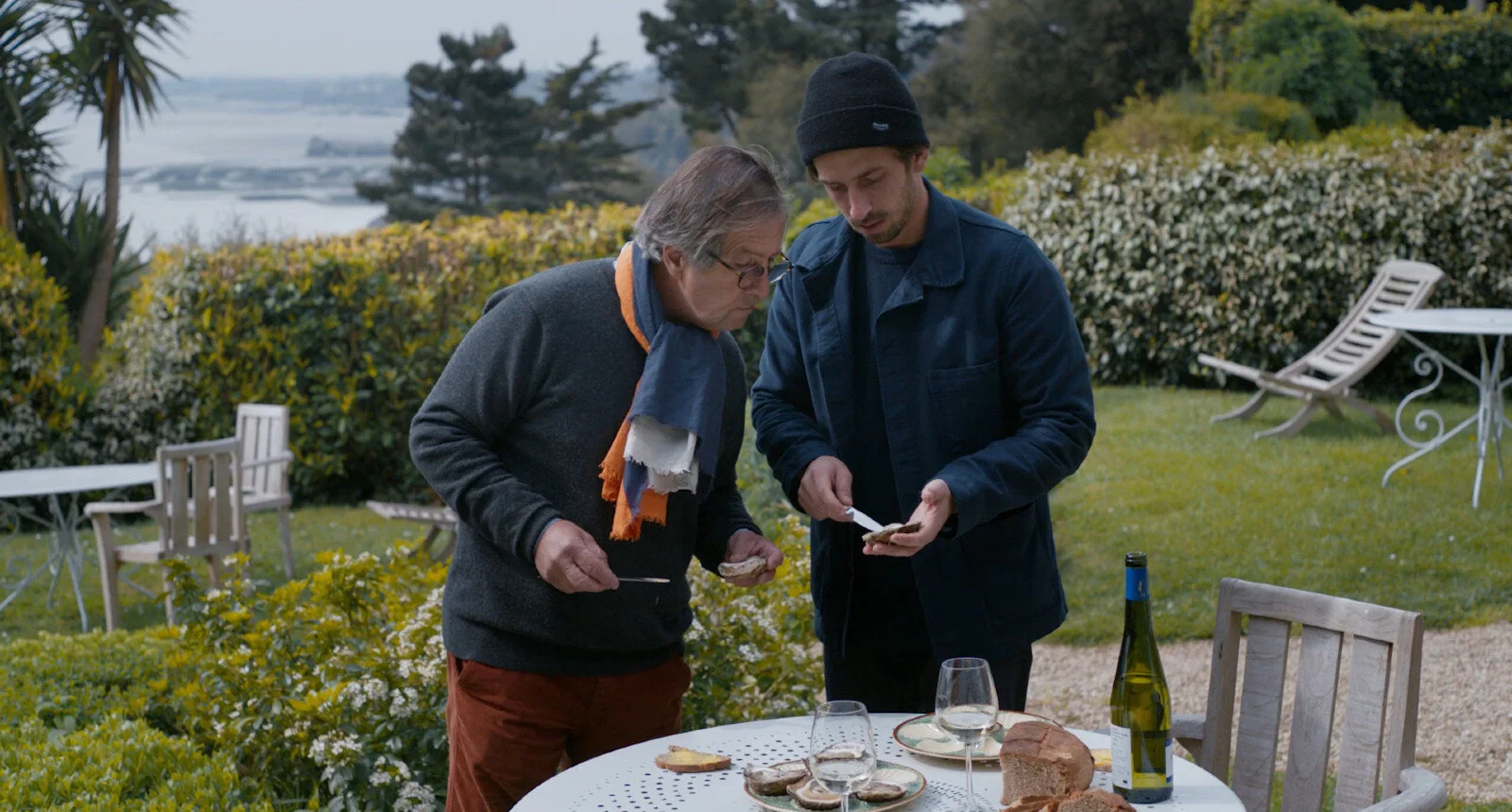Hot Docs Roundup #2: What To See (and Skip) at the World’s Best Documentary Film Fest
By Jim Slotek, Linda Barnard, Thom Ernst, Kim Hughes, Liam Lacey and Bonnie Laufer
No more sleeps as Hot Docs arrives today (April 29) in all its glory.
Lady Buds
For 10 days until May 9, you can gorge yourself on some of the planet’s best long and short–form films from literally across the planet. With some 219 titles from 66 countries in 12 programs, 50 per cent directed by women and picked from a staggering 2,300 submissions, there literally is something for everyone.
Original-Cin writers have worked diligently to preview as many films as possible via capsule reviews. See below as well as our premiere roundup here. You can also get a preview by theme here, as well as find out what stuff costs and how to watch. Have fun!
Bloom Up - A Swinger Couple Story
Bloom Up – A Swinger Couple Story
(Italy, 88 minutes)
D. Mauro Russo Rouge
Program: Nightvision
A persuasive testimonial for the swinger lifestyle, director and cinematographer Mauro Russo Rouge's jaw-droppingly intimate portrait follows an attractive midlife Italian couple, Hermes and Betta, who together explore their sexual fantasies via encounters with other couples, with singles in threesomes, and during group action. Not much is left to the imagination, yet the titillation factor is balanced by the more mundane (if I can use that word) discussions between the protagonists about what food to bring and what to wear to group sexual encounters and the aggravation of setting up meets online. Not until the end do we learn why Hermes and Betta got into the lifestyle but they insist it saved their relationship. What’s more, their mission — to help the filmmaker portray swingers as normal, decent folks simply hoping to strike a match beneath their sex lives with like-minded others — rings surprisingly true. Still, one wonders how patrons of Hermes and Betta’s pet store and grooming salon will react when word of their extracurricular activities gets out. – KH
Cannon Arm and The Arcade Quest
(Denmark, 97 minutes)
D. Mads Hedegaard
Program: Nightvision
Kim “Cannon Arm” Koebke is a shy Danish man in his fifties or sixties, with a long blond-grey mullet, who works as an oil technician, rarely speaks, and spends his many hours playing the eighties’ space-travelling arcade game Gyruss at Copenhagen’s Bip Bip Bar. Mads Hegedgaard finds a sweet spot between comedy and empathy as it follows Kim’s quest, aided by a team of fellow top gamers, to set a world record by playing Gyruss for 100 hours straight, a feat that involves bathroom breaks, food, and keeping a running mathematical count of lives. If he’s too good, the finicky antique game will crash. Kim’s friends, a couple of whom have been diagnosed with autism, are exceptional in many ways. Carsten, a world-record holder in Double Dragon — who, at one point in the film is assaulted by strangers because of his unusual manner — explains: “I have cognitive abilities that are off the charts. I just don’t know what to do with them other than gaming.” - LL
Dark Blossom
Dark Blossom
(Denmark, 80 minutes)
D. Frigge Fri
Program: Nightvision
Not much happens in the Danish town of Fjerritslev where Dark Blossom is set. For the three young friends at the film’s centre, that boredom means their elaborate goth costuming is as much a time-killer as an outward expression of their inner alienation. Similarly, not much happens in Dark Blossom which is really just a coming-of-age story in platform boots and nose rings. Josephine, Jay, and Mareridf, a.k.a. Nightmare, exhibit everything their goth predecessors from the 70s and 80s did: the fascination with the macabre, the labour-intensive hair, makeup, and clothing, the elaborate piercings, dodgy tattoos, and the passion for heavy music. This being the 21st century, all of that is shared widely on social, which is a cornerstone visual element here. The three are tight. But when Josephine finds herself a boyfriend, her deep connection to Jay and Nightmare wavers. All three must finds ways to connect with broader society and with themselves. We’ve seen this story before, but the get-ups are fun to observe. - KH
Grey Roads
(Canada, 74 minutes)
D. Jesse McCracken
Program: Canadian Spectrum
In his anti-nostalgic song “My Little Town,” Paul Simon wrote, “All of the colors are black/It's not that the colors aren't there/It's just imagination they lack.” The lyrics come to mind while watching Toronto filmmaker Jesse McCracken’s black-and-white film about returning to Markdale, Ontario, in Southwestern Ontario’s Grey County, which inspired the film’s doleful title and black-and-white palette. At times, Grey Roads feels like a title and location in search of a story. The narrative McCracken chooses is about the town’s decline (an aging population, shuttered businesses, a closed school) and the filmmaker’s two diametrically opposite male role models: his truck-driving, motorcycle-riding, rock ‘n’ roll dad, and his quiet-spoken maternal grandfather, an amateur historian and dedicated member of the Rotary Club.
By the end, the town’s prospects and the filmmaker’s perspective are both looking slightly more upbeat, though the film does not, like The Wizard of Oz, transform glorious Technicolor. Key to Markdale’s continuing viability is the loyalty of the town’s primary industry, a cheerfully old-fashioned product, Chapman’s Ice Cream. -LL
It’s Not Over Yet
It Is Not Over Yet
(Denmark, 94 minutes)
D: Louise Detlefsen
Program: Systems Down
Denmark is a place of social experiments from communal living to progressive prisons, and fictional stories as Lars von Trier’s to Thomas Vinterberg’s The Idiots, and recent Oscar contender, Another Round. In a retirement home called Dagmarsminde, nurse/founder May Bjerre Eiby — inspired by ideas and moved by her own family’s experience — is engaging on her own intuitive and compassionate approach to treating people with advanced dementia. Her private care home, in a rural setting, is the antithesis of the “human warehousing” model of nursing homes, where old people are medicated and confined until their end of life. This observational documentary follows daily interactions between the staff and the patients, who through various crises and good days, are treated with constant companionship, touch, and affection. How applicable this model is on a mass scale is hard to guess, though it’s impossible not to be warmed with the loving atmosphere of the home. -LL
Kímmapiiyipitssini: The Meaning of Empathy
(Canada, 125 minutes)
D. Elle-Máijá Tailfeathers
Program: Canadian Spectrum
The actress and filmmaker Elle-Máijá Tailfeathers returns to her childhood home, the Kainai First Nation in Alberta, for the direst of reasons: to record a blazing epidemic of opioid use, particularly fentanyl, which has gutted the population of the largest reserve in the country. Her mother, Dr. Esther Tailfeathers — an M.D. on the frontlines — and other socially minded locals, strive for “harm reduction,” an empathetic approach that doesn’t require total abstinence and recognizes “cold turkey” to be unrealistic. The movie abounds with the human faces of the reserve’s drug plague and shows the compounded difficulty of overcoming prejudice in nearby Lethbridge. – JS
Lady Buds
(USA, 96 minutes)
D. Chris J. Russo
Program: Persister
There are two things to take home from Chris J. Russo’s portrait of the post-legalization struggles of six women cannabis growers. One is that they aren’t unicorns. Women have for decades been a key part of the cannabis cultivation scene that fueled the economy of many Northern California towns. The second is that, with legalization, generations of pot farmers are being put out of business by regulations that favour corporate producers. As you can imagine, there are some pretty colourful characters in this milieu, and a sense of sadness hanging over the end of an era and of a family farm-based industry. - JS
Lost Boys
(Finland, 99 minutes)
D: Joonas Neuvonen and Sadri Cetinkaya
Program: Nightvision
Director Joonas Neuvonen, with Sadri Cetinkaya, follows-up his 2011 film, Reindeerspotting: Escape from Santaland with Lost Boys. Lost Boys is more of a spin-off than a sequel, and it's not an entirely effective one. After serving a seven-year stint in prison, Jani Raappana—the focus of Neuvonen's first film—sets off on a collision course through the drug-infested underbelly of Cambodia. When Raappana and his friend Antti go missing, the director returns to Cambodia to bring them home, a noble undertaking with a ready-made hook for a powerful documentary. But the script, narrated with grim intensity by actor Pekka Strang, struggles to emulate a Heart of Darkness approach without success. And Neuvonen's decision to include POV visuals of explicit drug use and sexual acts filmed through the distortion of a wide-angle lens, push what could have been frank depictions into something grotesque. Lost Boys fails to rise above inherent exploitation of drug use, bar girls, and back-alleys of Bangkok to be more than a xenophobic travelogue without a clear destination. - TE
Love It Was Not
Love It Was Not
(Israel/Austria, 86 minutes)
D: Maya Sarfaty
Program: World Showcase
Rarely do tales of survival get twisted into such an unimaginable love story as revealed in Love It Was Not. Love It Was Not is the story of Helena Citron, a beautiful Jewish Auschwitz prisoner, and Franz Wunch, an SS officer. The title refers to a popular song of the era that suggests something more manipulative was going on between the woman and her captor/lover. Told with frank detail and heartbreaking revelations, Love It Was Not questions how love could bloom and survive in the grips of inhumane treatment and suffering. Is Citron, whose time in Auschwitz was comparatively easy, a traitor or saviour? And is Wunch redeemed by his occasional acts of mercy? Love It Was Not is a gripping tale of survival, a divisive tale of love, and, in a moment unexpected, a tale of lasting guilt and sorrow. - TE
Man in the Field: The Life and Art of Jim Denevan
(USA, 78 minutes)
D. Patrick Trefz
Program: Artscapes
Using rakes and long hunks of wood, Californian Jim Denevan transforms beach sand and soil into massive temporary artworks, some so huge they can only be appreciated with a satellite camera. A self-trained chef and passionate farm supporter, Denevan uses the landscape to create a different kind of art with his travelling Outstanding in the Field dinners. Starting in 1999, his “roving restaurant without walls” has brought teams of local chefs to farms, creating dining experiences on sites where some of the food on the menu is produced. In caves, on beaches, in fields and even city streets, long tables follow the contours of the site. The four-course meals are served family style to encourage table groups to form mini-communities. With prices starting at $275 (U.S.), it is an elite experience. Denevan is the definition of California surfer-dude mellow and his relaxed temperament is only rattled when he talks about his father’s death and the mental illness that snakes through his family. The filmmakers are overly enthusiastic in crediting Denevan with being a farm-to-table pioneer; Berkeley chef Alice Waters was doing that at Chez Panisse when Denevan was in primary school. - LB
The Man Who Paints Water Drops
The Man Who Paints Water Drops
(France/South Korea, 79 minutes)
D. Oan Kim, Brigitte Bouillot
Program: Artscapes
North Korean-born avant-guarde artist Kim Tschang-Yeul found notoriety for painting a single subject in a rich variety of forms and stages: the water drop. Filmmaker Oan Kim describes his artist father, as “more of an enigma than Santa Claus” when he was a kid. So, this profoundly moving, intimate documentary is as much about one man’s obsession, artistic expression, and the trauma of war as it is a son’s attempt to unpack the mysteries of his father. Why is he compelled to paint water drops? Are these meditative works that range from hyperrealism to abstract tears, raindrops or just simple drops of water? Kim is a man of few words and his death in January at age 91 adds poignancy to the film. - LB
The Most Beautiful Boy in the World
(Sweden, 94 minutes)
D. Kristian Petri, Kristina Lindstrom
Program: Artscapes
PROUDLY SUPPORTS ORIGINAL-CIN
Not that it shows up on my radar much, but I’ll pass next time Luchino Visconti’s 1971 Death in Venice comes around. Directors behaving badly isn’t new, but there is a sense of a ruined life in this movie about the young Swede, Björn Andrésen, whom Visconti chose to play the teen love object of an ailing composer (Dirk Bogarde). The doc’s opening scene — audition footage of 15-year-old Andrésen being told to “get half-naked” — sets the tone for his being a briefly useful piece of meat. Visconti calling him “the most beautiful boy in the world” became a curse that set him up as a touring boy-toy to places like Japan (a talented pianist, he’d have preferred to devote his life to music). We meet him now, a survivor of a hard life, chain-smoking and drinking, and we learn of previous traumas. On the bright side, his brief but memorable role in Ari Aster’s Midsommar suggests an unextinguished spark. - JS
My Mohamed Is Different
(Egypt/Tunisia/Italy, 70 minutes)
D. Ines Marzouk
Program: World Showcase
No one comes off particularly well in this strangely unsettling doc about European women in the 70s pairing up with 30-something Egyptian men in contemporary Luxor. Maybe it’s the fact that these women — accomplished, vital, bright but lonely for male companionship — agree to terms you sense would repel their younger selves, namely sharing their husbands with much-younger, child-bearing Egyptian wives, some living one floor down, while footing the bills. Meanwhile, the men vacillate between complacent and nasty, with one piece of work complaining that his Egyptian wife “who cleans, irons and cooks for me [and who] obeys me even when I beat her… whereas a foreign wife has different rules.” Um, yes. Granted, as one protagonist insists, it’s her business and no one is getting hurt. But the film fails to deliver on the cheek of its title, instead scanning as sort of sad. - KH
Nothing But the Sun
Nothing But the Sun
(Switzerland/Paraguay, 75 minutes)
D. Arami Ullón
Program: World Showcase
This eye-opening documentary from Swiss-based Paraguayan director Arami Ullón is a reminder that the age of European conquest is still thriving in the heart of South America. Ullón focuses on one character, Mateo Sobode Chiqueno, a member of the traditional forest-dwelling Ayoreo tribe that has been bribed and coerced by missionaries to settle in desert communities, where they must buy water and survive on government handouts. Since the 1970s, Mateo has gone from community to community with his old cassette recorder, interviewing other Ayoreo people. Their stories are a treasure trove of cultural information, memoirs of nomadic life, traditional songs, and contemporary accounts of the trauma of contact. Like his subjects, Mateo lived in the forest until his adulthood and longs to return. The title refers to his assertion that the sun is the only thing white people don’t think of as property. – LL
The Return: Life After ISIS
(Spain/UK, 90 minutes)
D. Alba Sotorra Clua
Program: Special Presentations
The worst mistake of several Western women’s lives — being beguiled by Islamic State propaganda into joining the doomed jihad — is chronicled here by Alba Sotorra Clua, whose previous film, Commander Arian, introduced us to the Kurdish women commandos who were among the liberators of the “Caliphate.” Forced marriages and effective slavery faced the female ISIS recruits, then life, often with children in tow, in a refugee camp. But the final indignity is that many of them are now considered enemy combatants at home; they live in limbo without citizenship. Clua profiles the sisterly women of one camp, who wait in frustration for their appeals to be granted. -JS
School of Hope
(Finland/France/Morocco, 78 minutes)
D. Mohamed El Aboudi
Program: International Spectrum
A film about the thirst for knowledge, and a literal thirst for water, School of Hope is a microcosm of how climate change is reshaping traditional cultures. After 15 years of drought, the tribal nomads east of the Atlas Mountains have watched their flocks decline and livelihoods disappear. Their community leaders have accepted that their children need to go to school to learn trades more viable than sheep herding and have invited itinerant teachers to help them. Moroccan-born Finnish-based director Mohamed El Aboudi spent three years in the nearly barren but visually dramatic Moroccan desert following an idealistic young teacher and three of his students, Mohamed, Miloud, and Fatima, along with their families.
The titular School of Hope is a white-washed clay brick hut, without electricity or washrooms. To get there, the students face extraordinary challenges, including travelling distances of 10 kilometres or more on foot. Meanwhile, their parents struggle daily to find drinkable water for their children and livestock. The film’s title, though, is apt. The teacher, Mohamed, is a charismatic figure, who encourages the children to learn, play, and envision new futures. There are numerous moments worthy of a scripted inspirational drama, including a heart-tugging scene in which a delighted boy shows his illiterate father to write his own name for the first time. - LL
Set!
(USA, 105 minutes)
D: Scott Gawlik
Program: Artscapes
The knives are out in the cutthroat world of competitive table setting. Scott Gawlik’s lighthearted, if overlong, look at the fine art of tablescaping (one competitor likens it to brain surgery) chronicles the six-month lead up to the annual Orange County Fair competition. Hopefuls can spend months and thousands of dollars designing and staging the ultimate dinner table setting yet walk away with nothing more than a Best in Show ribbon if they win. There’s plenty of snark and bitchery as the tablescapers weigh their chances and assess what other designers may be up to. From driven veteran Bonnie, to obsessive Janet and the artistic Hilarie, who makes a wonky political statement about animal poaching in Africa with her table, Set! is a study of what makes a tablescaper click. Lone male competitor Tim, who puts his creative all into a whimsical Dr. Seuss-themed table despite being unemployed and broke, stole my heart. His wide-eyed optimism is a lesson in grace. -LB
The Sparks Brothers
(USA, 140 minutes)
D. Edgar Wright
Program: Special Presentations
It’s tempting to call director Edgar Wright’s valentine to Russell and Ron Mael, a.k.a. Sparks, the benchmark for all future documentaries about bands, cult or popular. But there is only one Sparks: wildly prolific, groundbreaking, and consistently angular with both members still alive and lucid enough to recall everything while being siblings to boot, so sharing a lifelong frame of reference. As such, Wright’s achievement will likely remain as singular as its subjects. And singular doesn’t capture the half of this sprawling film which, across two-plus hours, tells a stranger-than-fiction story spanning six decades, 25 albums, a gazillion tours and TV appearances, brushes with fame and infamy and just enough bona fide weirdness to be genuinely riveting.
In addition to a grocery list of marquee admirers offering fantastic observations and recollections, including (but not limited to) musicians Beck, Flea, Thurston Moore, “Weird Al” Yankovic, members of New Order, the Sex Pistols, Erasure, the Go-Gos, Franz Ferdinand, and Duran Duran, author Neil Gaiman, actors Mike Myers and Patton Oswalt, and producers Todd Rundgren and Tony Visconti, we also get anecdotes from the Mael brothers (both clever as hell), reams of home footage, archival footage, animation and more about “the best British group ever to come out of America.” If you know nothing about Sparks, you will love The Sparks Brothers for its storytelling, fleet pacing, stunning visuals and, of course, its music. If you know everything about Sparks (looking at you, JB) you will be knock-kneed. Honestly, one of the best docs ever. - KH
Spirit to Soar
(Canada, 46 minutes)
D. Tanya Talaga and Michelle Derosier
Program: Canadian Spectrum
Hot Doc’s other Indigenous Prodigal Daughter movie besides Kímmapiiyipitssini: The Meaning of Empathy sees journalist Tanya Talaga — author of the book Seven Fallen Feathers — return to Thunder Bay, where she’d previously covered the inquest into the deaths of seven young Native people in the city, and the police’s sluggish response. It’s very much a re-cap and a mood setter, with young people sharing their fears and experiences, and the Toronto-raised Talaga following her mother’s footsteps. There’s little good news on the racial front, but the combination of some of the world’s most beautiful scenery and bleak events is almost grimly poetic. -JS
The Taste of Desire
The Taste of Desire
(Netherlands, 87 minutes)
D: Willemiek Kluijfhout
Program: Special Presentations
An elder and younger French chef debate whether the wet and glistening frilled edges of a raw oyster are called a “skirt” or a “dress,” but there’s no mistaking the female nature of the bivalve. Director Willemiek Kluijfhout explores the oyster through the eyes of those whose livelihoods and fates are tied to it: a New York burlesque dancer who emerges from a prop shell, two French Michelin-starred chefs, a young Swedish woman who revels in the solitary pursuit of diving for oysters, a Japanese pearl jewellery artist and a terminally ill writer racing to finish a definitive history of the shellfish. Each mini-narrative has a twist. But the unseen character identified as “desire” reminding us in a playfully sexy voice of the fickle attributes of longing, feels out of place. – LB
The Voice Break Choir
(Sweden, 29 minutes)
D: Ina Holmqvist, Martina Carlstedt
Program: Short
This thirty-minute documentary redefines the term Breaking Bad. The film follows boys trapped in a choirboy purgatory; their once distinctive vocals caught between being youthful and being adult. The film divides its time with glimpses of the boys in class, auditions, and talking one-on-one with the camera. The movie achieves all it can within its brief stay, and so it is backhanded praise to criticize the film for not giving us more, like extending footage of the boys' interaction between each other and beyond the school wall. But even with its limitations, The Voice Break Choir remains a unique glimpse into the hearts of young men whose biggest passion is hitting a high C note. - TE
We Are As Gods
(USA, 95 minutes)
D. David Alvarado and Jason Sussberg
Program: Special Presentations
There are effectively two movies here: a portrait of Stewart Brand, the counterculture environmental visionary who started the legendary Whole Earth Catalogue, and a running debate on the apparently achievable goal of resurrecting extinct species and ecosystems with an eye toward combating climate change. The latter is almost identical in tone (and in its choice of interview subjects) with a 60 Minutes piece that ran a while ago. The former is a nicely personal portrait of an erstwhile counterculture hero whose colourful personality can still take over a room. - JS
WeWork: Or the Making and Breaking of a $47 Billion Unicorn
(USA, 101 minutes)
D. Jed Rothstein
Program: Special Presentations
The spectacular rise and even more spectacular fall of Adam Neumann, the Israeli-born co-founder and former CEO of commercial real estate company WeWork, propels this fascinating (if overlong) film which comes off like a protracted, Wall Street version of the ill-fated Fyre Festival. Like Fyre’s Billy McFarland, Neumann is portrayed as a charismatic ace salesman able to tap into people’s desires with precision and cunning, in this case promoting community among young entrepreneurs while seducing venture capitalists with the promise of huge ROI.
Indeed, at one point, WeWork is described as being like “the Fyre Festival gone right…” until it all went very wrong. New York business journalists detail how Neumann’s grand vision for communal work and living spaces pushed the company to a staggering $45 billion valuation at its peak in 2018 only to crumble with its now infamous failed IPO shortly thereafter.
Former employees testify to WeWork’s arguably more insidious failure: fomenting fake camaraderie. Indeed, for all his talk of unity and togetherness, Neumann leapt from the smoldering wreck with $1.7 billion. Director Jed Rothstein’s film would have been benefited had Neumann and his New Age-y wife Rebekah — cousin of Gwyneth Paltrow no less and portrayed here as a dubious force behind the scenes — agreed to participate. Also curiously absent from this story is Miguel McKelvey, Neumann’s WeWork co-founder and, ironically, its chief culture officer who seems to have existed in the margins while Neumann and his grand ideas commanded centerstage. - KH

